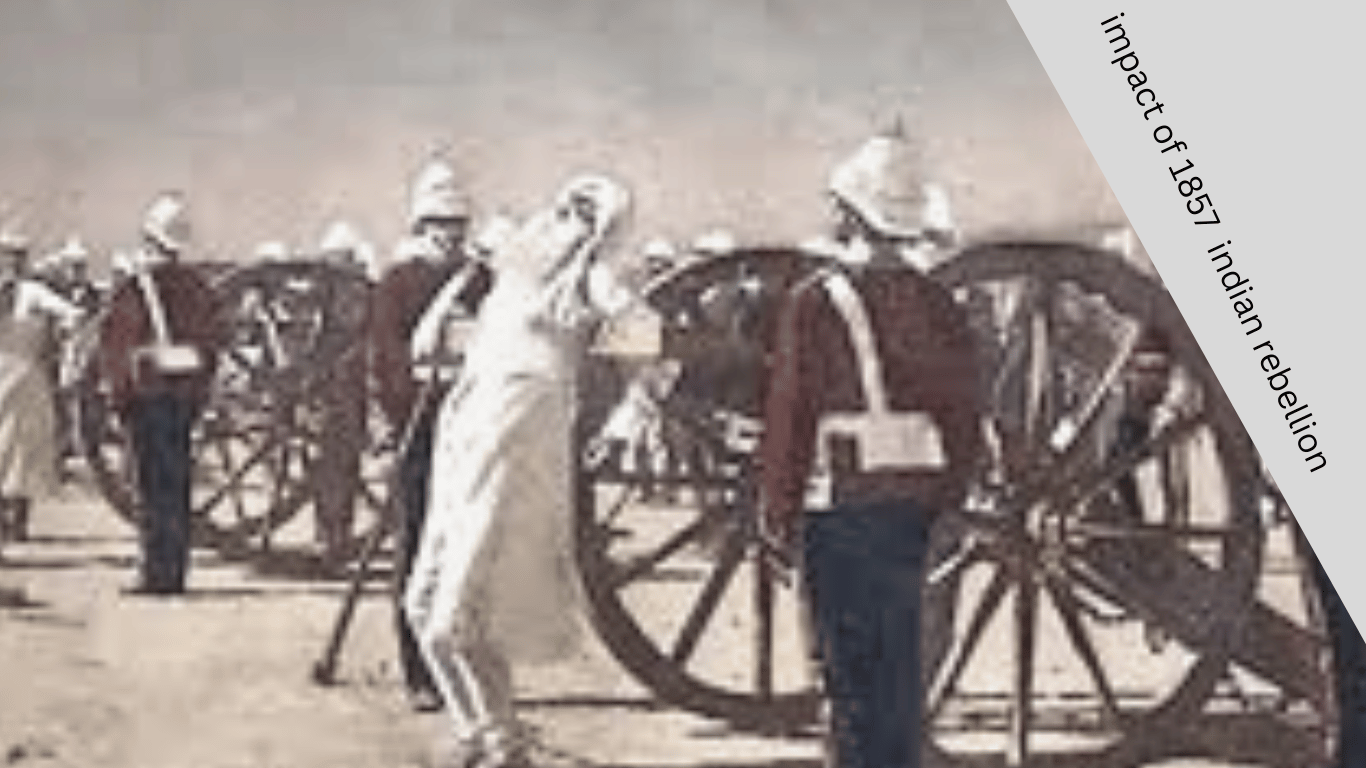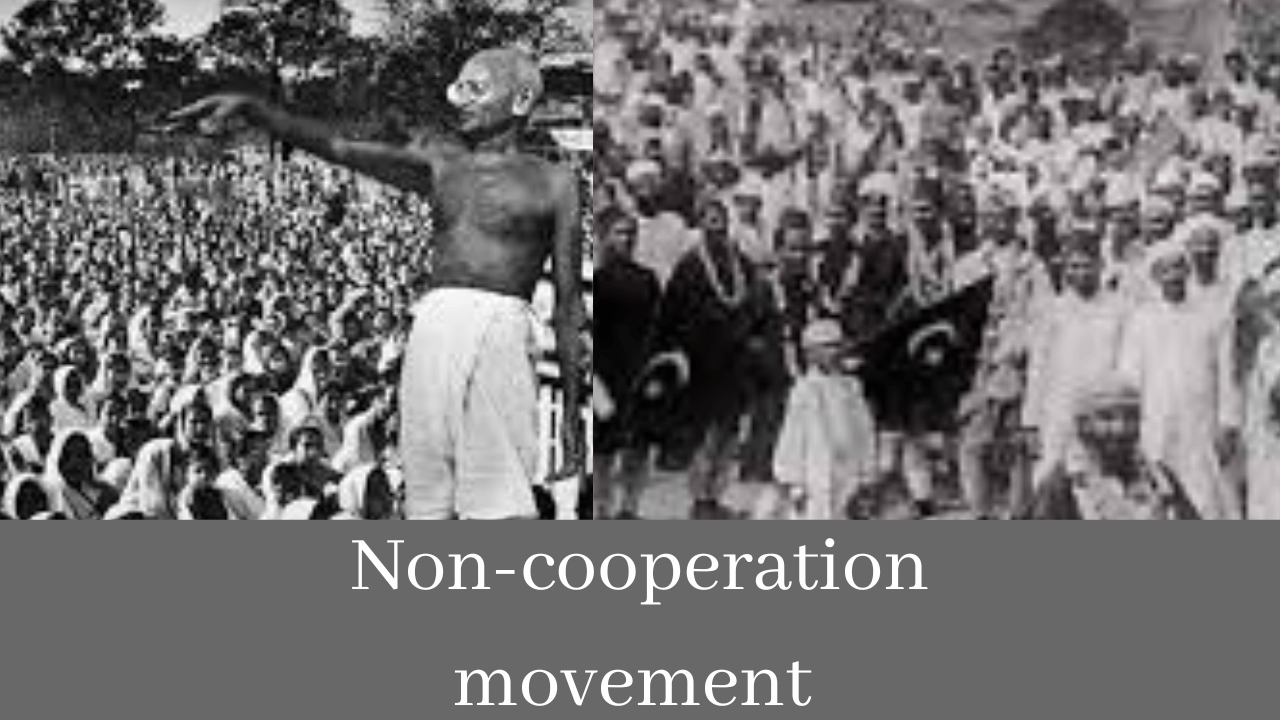Indian troops used force to challenge the British East India Company’s control during the Indian Rebellion of 1857. Beginning in May 1857, the uprising finally enlisted the assistance of other princely kingdoms with limited autonomy and traditional rajas. There were several Mughal dynasty members among the leaders of the 1857 Indian Rebellion. The final Mughal emperor, Bahadur Shah Zafar, was the most well-known, and other important figures were Nana Sahib, Rani Laxmibai, Begum Hazrat Mahal, and Tatya Tope.
Assessing the Impact of the Indian Rebellion, 1857
The Indian Rebellion of 1857, which rocked British India to its foundation and continues to have an impact today, occurred about 166 years ago. It is critical to comprehend the causes of the Indian Rebellion to accurately evaluate its effects. After more than a century of British East India Company control, Indians had grown increasingly dissatisfied with the British Empire by 1857. The public was fed up with being taxed without representation and with the British East India Company’s reputation for corruption and exploitation. The turmoil was exacerbated by religious conflicts between the Muslim minority and the Hindu majority.
A group of British deployed sepoys (Indian troops) rebelled against their masters and launched a major uprising against British authority in 1857. Thousands of Indians joined the struggle against the British as the rebellion swiftly swept over all of India. Beginning in Meerut, the mass uprising against British authority swiftly spread to the rest of northern and central India. Dissatisfaction with British policy, anger at British military presence, and cultural as well as religious differences were among the elements that led to the insurrection.
With the ”Indian Rebellion of 1857”, the “British East India Company’s” control in India came to an end and was replaced by direct British rule. A new British Indian Army was established as part of the changes the British governance, the uprising also resulted in the eradication of Indian tradition and culture.
The people of India were also significantly impacted by the uprising since many people there died or were forced to flee because of it. Because it signaled the beginning of the end of British rule in India and the rise of Indian nationalist movements, the insurrection is sometimes viewed as a turning point in Indian history. The result was the ultimate end of British colonial control in India and the rise of the Indian independence movement.
It had a significant impact on British-Indian relations. The rise of Indian opposition to British rule is viewed as another significant milestone in the history of Indian nationalist movements. Even though the insurrection was finally put down, British India suffered significant losses as a result. An important turning point in Indian history, the Indian Rebellion of 1857 still has an impact today.
Changes in Social, Economic, and Political Systems of the Indian Rebellion
The social, economic, and political structures of India were significant changes as a result of the Indian Rebellion of 1857. In terms of social inequality, it led to the denial of rights to Muslims and the preference of high-caste Hindus over lower-caste Hindus. This uprising also resulted in the repression of press freedom, the execution of rebels in front of the public, and widespread property devastation on both sides, all of which had disastrous effects on Indian society.
The British government changed its emphasis in terms of the economy from one focused on commerce to one centered on agriculture. The British were able to manage the agricultural area surrounding them and boost their income thanks to the development of the agrarian system.
Creation of a New Country for Muslims in India
The foundation of a separate nation for India’s Muslims was one of the main outcomes of the 1857 Indian Rebellion. This new nation, which took the name Pakistan, was created as a direct result of the uprising against British authority. Pakistan’s founding had a significant impact on India and its citizens. It triggered an upsurge in religious hostilities between Hindus and Muslims throughout India, resulting in several riots. To this day, religious hostilities are still severe in some regions of the nation. It also had a significant impact on the development of Indian politics by providing a stage on which different political philosophies could flourish and vie for supremacy.
Sir Syed Ahmed Khan was the person who initially proposed the notion of a Muslim state, arguing that Muslims had to have their area free from British rule. The Muslim population of India began to adopt this viewpoint, which ultimately resulted in the creation of Pakistan in 1947.
Conclusion
The Indian Rebellion of 1857’s events had a significant effect on the subcontinent and beyond. The British Raj was solidified by the victory, which extended British control throughout the subcontinent. The rebellion’s actions also contributed to the development of the thought that India may be divided into two Muslim and Hindu states, which would eventually result in the establishment of Pakistan.





2 Comments on “Impacts of Indian Rebellion, 1857”